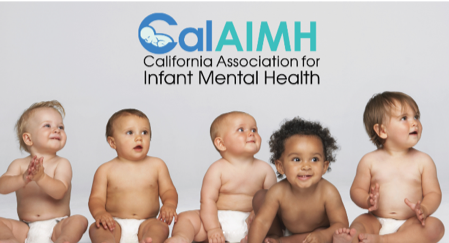
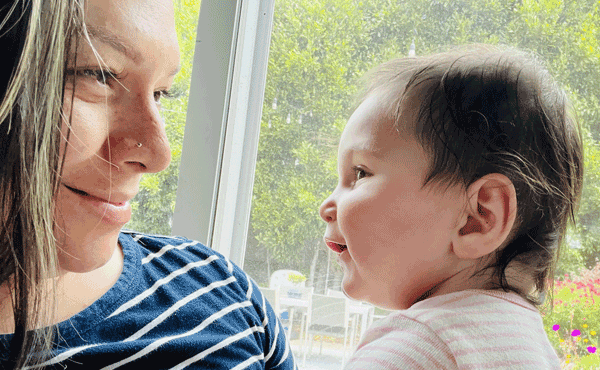
This area of the website includes information about infant and early mental health in California, organizations promoting infant and early mental health and research on brain development.

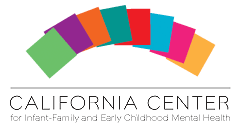
“The California Infant and Early Childhood Mental Health Consultation (IECMHC) Network is a professional development project funded by the California Department of Social Services (CDSS), Child Care and Development Division, and is coordinated by WestEd. The IECMHC Network is designed to deliver consultation services, resources, and training activities for early learning and care center-based program staff, family child care providers, and family, friend and neighbor caregivers. IECMHC Network services are offered at no cost for early learning and care programs and home-based providers in California.
Visit the IECMHC Network portal to access consultation services. If you are requesting consultation services for the first time, you will be prompted to set up an account to submit your request. You will only need to complete the IECMHC Network account registration process one time. Please note your username and password so that you have them available for future use.
You can access “just in time” consultative support via the IECMHC Network Helpline by calling 1-877-524-2422. Live Helpline staff will offer one-on-one support for timely, non-emergency guidance regarding specific questions or concerns related to infant, toddler and young children’s social, emotional and behavioral health. We also encourage you to join us for additional services and supports, including webinars and workshops, open-door consultation sessions, and Community of Support series. All services are offered at no cost to participants.”

IECMHC is a prevention-based approach that pairs a mental health consultant with adults who work with infants and young children in the different settings where they learn and grow, such as child care, preschool, home visiting, early intervention and their home. Mental health consultation is not about “fixing kids.” Nor is it therapy. Mental health consultation equips caregivers to facilitate children’s healthy social and emotional development.
The Center of Excellence for Infant & Early Childhood Mental Consultation (CoE for IECMHC) is a national center providing technical assistance to programs, communities, states, territories, and tribal communities, and professional development to individual mental health consultants to increase access to high quality mental health consultation throughout the country. The Center aims to impact the field of IECMHC by supporting the growth and advancement of the profession.
The CoE for IECMHC also serves as the clearinghouse for best practice resources related to developing, implementing and maintaining an IECMHC program at a national, state, territorial, community or tribal level.
Resources can be found at: https://www.iecmhc.org/resources/.
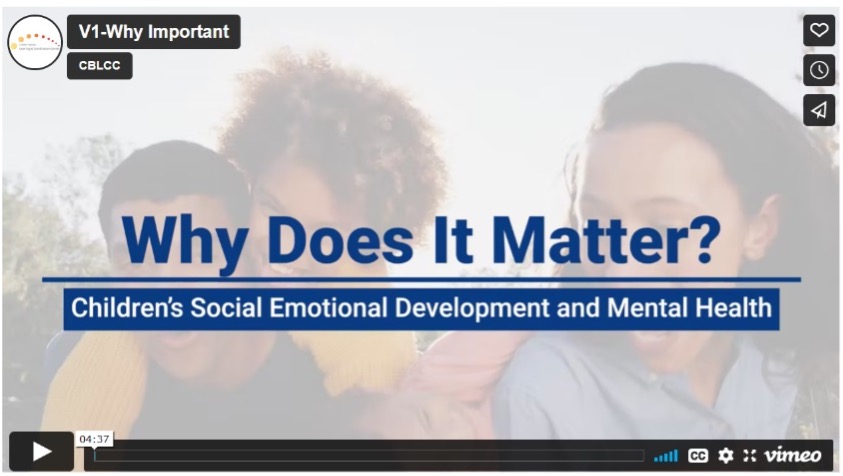
Early childhood experiences can strengthen or disrupt a young child’s social, emotional, and cognitive development, with consequences that can last a lifetime. This video spotlights the importance of integrating support for the social emotional development of young children and the well-being of their caregivers into all child- and family-serving programs.
On June 14, the Departments of Health and Human Services (HHS) and Education (ED) issued a Dear Colleague Letter and four recommendations to state, territorial, tribal, and local policymakers and administrators of systems, agencies, and programs responsible for young children’s health and well-being, social-emotional development, and early learning. These recommendations and action steps are intended to help early childhood systems work collaboratively to ensure that young children and their caregivers have access to high-quality resources that equitably support social-emotional development and mental health. The Dear Colleague Letter also includes links to various resources available to support this work.
The Administration for Children and Families also worked with federal partners to develop a series of short videos to highlight the recommendations from the letter. The videos spotlight important issues such as caring for caregivers, both parents and early care and education providers, and systemic supports essential for supporting young children’s mental health and well-being. The first video spotlights the importance of integrating support for the social emotional development of young children and the well-being of their caregivers into all child- and family-serving programs. View the video. Other videos will be released over the summer.
This briefing paper explores Infant and Early Childhood Mental Health policies and practices that state early intervention (Part C) programs may consider implementing to meet the social-emotional and mental health needs of infants and toddlers in the context of relationships with their families and other caregivers.
Early Childhood Technical Assistance Center provides a set of free, curated resources that address the social-emotional well-being of young children from birth to five. Visit this site to learn more about prevention, intervention, and treatment approaches that are provided within the context of the child’s relationship with their family and other caregivers.
Head Start and Early Head Start programs support the mental health of children, families, and staff every day. Early childhood mental health is the same as social and emotional well-being. It is a child’s developing capacity to express and regulate emotions, form trusting relationships, explore, and learn—all in the cultural context of family and community. The mental health of children and the adults that care for them is essential for school readiness.
Explore the resources including: Supporting Social and Emotional Wellness; Mental Health and Equity; Family Mental Health-Addressing Depression; Promoting Staff Well Being.
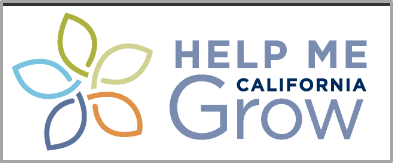
“First 5 leads statewide efforts to champion the complex needs of young children and their families through strong, effective and proven systems of care. The Help Me Grow system has been identified by First 5 Commissions to be the perfect framework for advancing local Early Identification and Intervention efforts and unifying our collective message that California must do better to ensure children are linked to the support they are entitled to receive.
We know that California’s system for early identification and intervention has been failing. Despite the increased recognition of the important role that screenings play in detecting developmental, behavioral and physical delays, our state continues to be 30th in the nation for ensuring early identification and linkage to intervention. Even when a delay is identified, families struggle to navigate California’s complex early intervention system: incomplete lists of resources, long waiting lists for services, inconsistent use of screening tools, and the “wait and see” approach leave too many children without the early support they need.”
Twenty-nine counties in California are part of Help Me Grow. Find links to information about each county’s Help Me Grow program.
Help Me Grow is a system that connects at-risk children with the services they need. HMG is an efficient and effective system — with a proven track record — that assists states in identifying at-risk children, then helps families find community-based programs and services.
HMG does not provide direct services. Rather, it is a system for improving access to existing resources and services for children through age eight. Over 25 states are implementing Help Me Grow, including California. Currently, nine California counties are affiliates of Help Me Grow National: Alameda, Contra Costa, Fresno, San Bernardino, San Francisco, San Joaquin, Orange, Solano, and Ventura. Many other counties in California are part of the Help Me Grow Learning Community that are in the process of developing the components of the Help Me Grow system. For more information contact Patsy Hampton at patsy@first5association.org.

Offers no cost infant and early childhood mental health consultation services, supports and resources for all early learning and care providers in California
The California Infant and Early Childhood Mental Health Consultation (IECMHC) Network is a professional development project funded by the California Department of Social Services (CDSS), Child Care and Development Division, and is coordinated by WestEd. The IECMHC Network delivers consultation services, resources, and training activities for early learning and care center-based program staff, family child care providers, and family, friend, and neighbor caregivers. IECMHC Network services are offered at no cost for early learning and care center-based programs and home-based care providers in California.
The Infant Development Association of California (IDA) is a multidisciplinary organization of parents and professionals committed to optimal developmental and positive social and emotional outcomes for infants, birth to three, with a broad range of special needs and their families. IDA advocates improved, effective prevention and early intervention services while providing information, education, and training to parents, professionals, decision makers, and others.
“Infant and early childhood mental health (IECMH), or healthy social-emotional development in very young children, develops in the context of family, community, and cultural expectations. Culture—the shared implicit and explicit rules and traditions expressed through the beliefs, values, and goals of a group of people—is the keystone of one’s identity and shapes people’s understanding of the world (Kalyanpur & Harry, 1999). Supporting staff members in how best to provide high-quality, diversity-informed and culturally competent services to children and families is a critically important skill for program leaders.” This article describes the importance of diversity informed practice and ten tips for promoting diversity informed practice among staff.
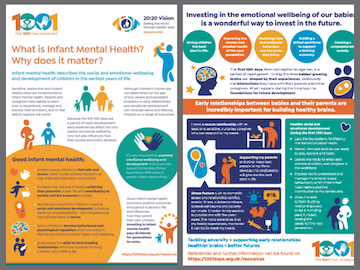
Infographics created by the Parent-Infant Foundation of the United Kingdom explain the definition of infant mental health, why it matters and why relationships between parents and their babies are so important in the first two years of life.
What is Infant Mental Health? Why Does it Matter? (PDF)
This infographic, created for Infant Mental Health Awareness Week 2020, describes what infant mental health is and why it matters. It explains the fundamental role of early relationships and how infant mental health lays the foundations for a range of important outcomes.
This infographic sets out the core story of why relationships between parents and their babies in the first 1001 days are so crucially important. It was co-created by a wide range of professionals, coordinated by the Parent-Infant Foundation. Importantly, the infographic makes it clear that BOTH tackling adversity AND supporting early relationships are important in giving children the best start in life.

The National Center for Pyramid Model Innovations (NCPMI) is funded by the Office of Special Education Programs to improve and support the capacity of state systems and local programs to implement an early childhood multi-tiered system of support to improve the social, emotional, and behavioral outcomes of young children with, and at risk for, developmental disabilities or delays. The goals of the Center are to assist states and programs in their implementation of sustainable systems for the implementation of the Pyramid Model for Supporting Social Emotional Competence in Infants and Young Children (Pyramid Model) within early intervention and early education programs with a focus on promoting the social, emotional, and behavioral outcomes of young children birth to five, reducing the use of inappropriate discipline practices, promoting family engagement, using data for decision-making, integrating early childhood and infant mental health consultation and fostering inclusion.
NCPMI has developed training modules, materials and tools for infants and toddlers and preschoolers to support the implementation of the Teaching Pyramid goals and practices. Visit the website to learn more and gain access to free resources.
This synthesis has been developed to answer some of the most frequently asked questions that early childhood providers have about Infant Mental Health (IMH) - early social and emotional development - and the IMH system. It also provides information about where to turn for additional information for promoting IMH when children and families are experiencing challenges.
The synthesis will address:
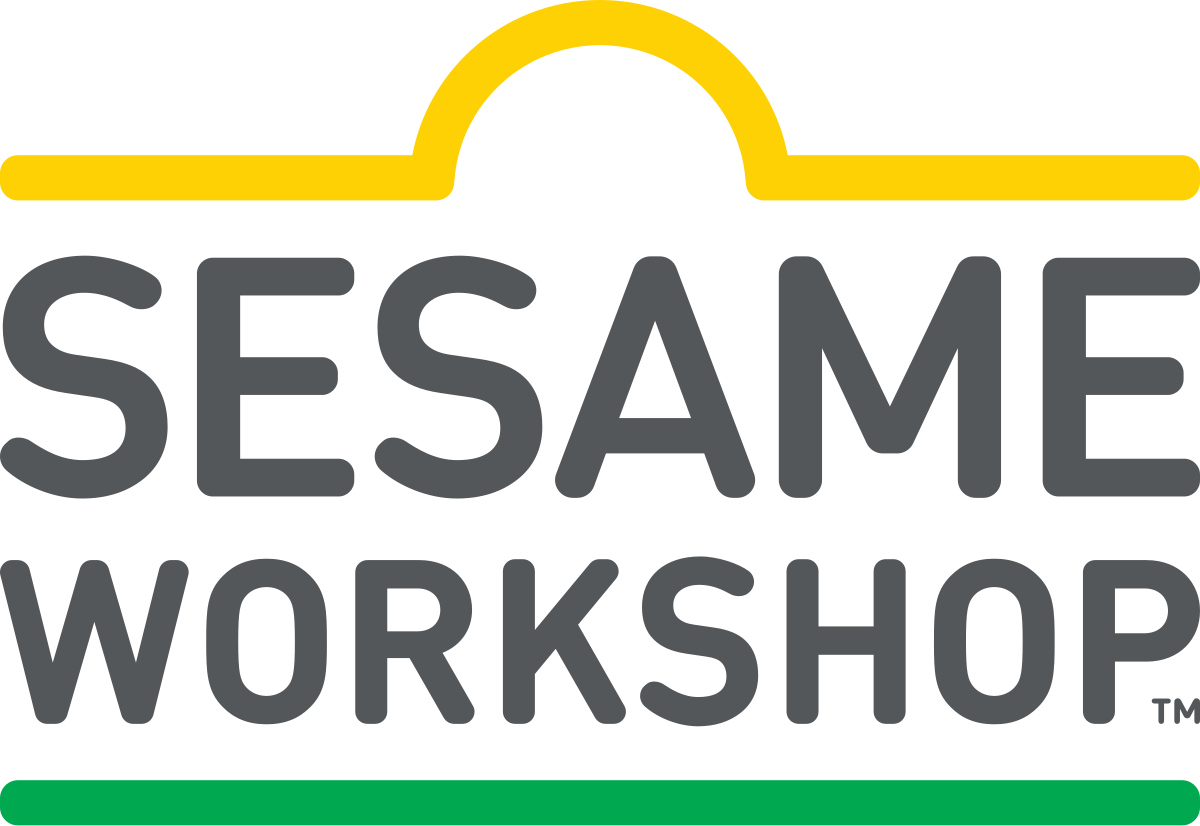
Emotional Well-Being: Children who are healthy in mind, body, and heart can thrive in every way. Mental health IS health! Sesame Street Workshop has a wealth of resources to support social and emotional development for professionals and families. The resources highlighted below focus on the caregiver child relationship, the foundation of emotional well-being.
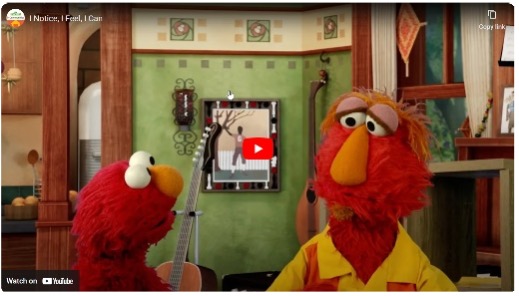
Everyone has big feelings sometimes... and grown-ups can share helpful ways for children to move through them. In this video, watch Elmo’s daddy show that feelings matter. Then you can print out the three step plan provided to help children manage challenging emotions.
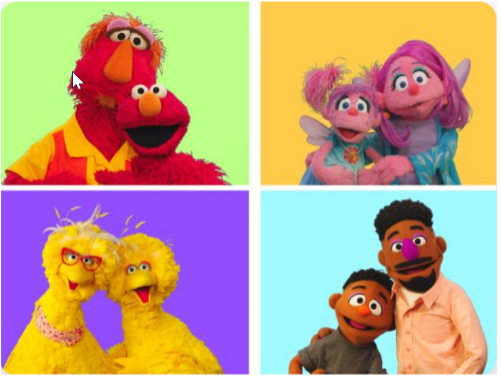
This soothing and engaging song celebrates the important relationships between children and their trusted grown-ups. You’ll find links to other resources supporting emotional well-being here as well.
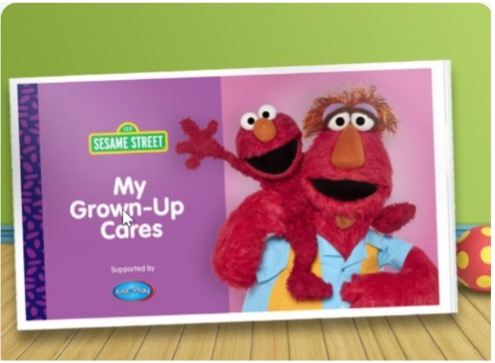
When you listen to your child, share joyful moments, and offer comfort, support, and love, you’re helping them build a foundation of emotional well-being. The most important thing you can do for your child is to be a steady, loving presence in their lives! Read this interactive book online with your child.
What Mental Health Issues Look Like in Little Kids
“IECMH is the developing capacity of the infant/young child to form close and secure relationships; experience, manage, and express a full range of emotions; and explore the environment and learn—all in the context of family, community, and culture.”
“IECMH is a multidisciplinary field, inclusive of persons from many professional and community backgrounds and systems, focusing on enhancing the emotional and social competence of infants, toddlers, and preschool-aged children through healthy relationships. Anyone who touches the lives of babies, young children and their families can contribute to promoting infant and early childhood mental health (IECMH).”

When parents and caregivers receive the support they need to foster close connections and healthy relationships with their babies, they are able to serve as a buffer against the impacts of ongoing and inherited trauma many families face every day.
ZERO TO THREE works to ensure that babies and toddlers benefit from the family and community connections critical to their well-being and development. Healthy connections help build babies’ brains. By supporting the caring adults who touch the lives of infants and toddlers, we hope to maximize our long-term impact in ensuring all infants and toddlers have a bright future.
Visit the Zero to Three Resources page for information geared towards supporting families, professionals, and policy makers. Resources are also available in Spanish.